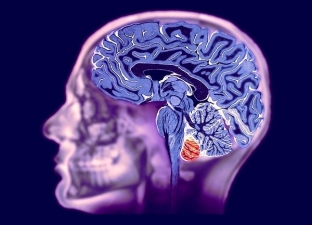Across from you is a person (let's say a boss), he is furious, screaming, blaming all the troubles of mankind and not particularly choosing expressions. Anger boils in you, you can hardly restrain yourself from screaming in response. Neuroscience offers ways to manage anger – both right and wrong. It will be useful for each person to know what mistakes he makes when trying to control this destructive emotion, why this is not always possible and how to behave better when a wave of anger covers his head. Estet-portal.com presents: neuroscience vs anger.
Suppression – far from the best anger management tactic
With the right combination of circumstances and sufficient willpower, you can suppress your anger and remain outwardly unshakable. However, almost always such anger management – not the best strategy. Yes, you manage to maintain dignity and not become like your opponent, but the outcome of such a fight with anger – inevitable loss, because in this way you make the emotion even stronger.
When you try to suppress anger, a whole bunch of negative changes happen in your brain, which as a result reduces your ability to perceive good things, and it becomes easier to cling to negative things. The amygdala of the brain, which is responsible for emotions, begins to work under stress.

Splash out emotion – does not mean learning to manage anger
If you brush off a pillow or other inanimate object, it would seem that you should feel better. However, neuroscience does not consider this method effective in managing anger. As a result, the emotion, oddly enough, only intensifies over time.
Focusing on a negative emotion will likely result in a more intense experience of that emotion in the future, and it will be more difficult to deal with, resulting in both mental and physical health effects.
Share your emotions with a friend, share your anger and get support – constructive and harmless way, as it may seem, but in the end the effect is the same as from the above method.
What is the most effective anger management method?
Distraction – the best neurobiological anger management method
How does distraction help with anger management? The answer lies in the brain and the mechanisms of its work. The fact is that brain resources are limited, and when you are distracted by something else, the thought center of your body can no longer focus on the negative. Cognitive tasks and emotional reactions use the same resource, so switching to solving math problems or playing Tetris, solving a crossword puzzle does not let negativity take hold of you.
You've probably heard of the delayed gratification test: a child is seated on a chair with a marshmallow and they leave, promising to bring another if the child can resist the temptation to eat the sweet. Children who pass the test are more successful in the future than their impatient peers.
So, the secret of children who didn't eat the treat and waited for the reward is that they were able to distract themselves from the thought of immediately eating the treat:
- invented funny stories;
- composed songs;
- make faces;
- played an imaginary piano;
- simply picked their nose or ears.
This elementary simple approach is also effective in managing anger. Despite the fact that it is not so easy to get distracted when there is a source of anger in front of you, neuroscientists offer effective methods for such distraction.
Effective distractions for anger management
Let's imagine the situation from the beginning of the article again: an angry person is yelling at you, you are on the verge of a breakdown. Now imagine that a loved one died yesterday. Most likely, such a circumstance will make you change your anger to compassion.
Now let's look into the – this is important for anger management. The situation itself has remained unchanged: they shout at you, it is unpleasant for you. Only one thing has changed – your attitude towards her. We do not get angry at events, our subjective views and beliefs cause anger.
That's why the best way to calm yourself – think " It's not about me. The man is having a bad day. Perhaps something happened to him.».
Interestingly, the brain also likes this approach. When you start empathizing with a person instead of being angry with them, the amygdala calms down and you become more receptive to positive emotions.
Based on the foregoing, estet-portal.com recommends that next time you try to discard the idea that the person is opposed to you. The constant practice of re-evaluating your views on the situation will help develop willpower and not only become an expert in anger management, but also control any negative emotions without trying on the role of a victim. Learn to forgive – Not for others, for yourself. After all, clinging to anger and anger – it's like drinking poison and expecting your opponent not to die.






Add a comment